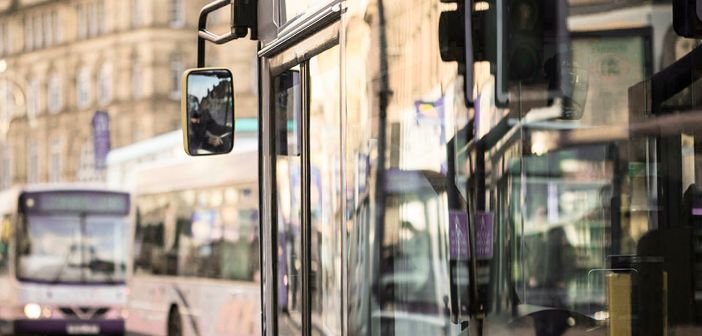British prime minister Boris Johnson has today unveiled a major new bus strategy, which will see lower, simpler flat fares in towns and cities, turn-up-and-go services on main routes, and new flexible services to reconnect communities.
Backed by £3bn of investment, the government’s new bus strategy’s aims to see passengers across England benefit from more frequent, more reliable, easier to use and understand, better coordinated and cheaper bus services.
The changes include:
- Simpler bus fares with daily price caps, so people can use the bus as many times a day as they need without facing mounting costs;
- More services in the evenings and at the weekends;
- Integrated services and ticketing across all transport modes, so people can easily move from bus to train;
- All buses to accept contactless payments;
- Hundreds of miles of new bus lanes, making journeys quicker and more reliable, getting people out of cars, reducing pollution and operating costs.
Johnson’s 10-point plan sets out how the government will accelerate the transition to greener and more sustainable transport. It plans to:
- Deliver 4,000 new British-built electric or hydrogen buses;
- Transition cities and regions across England to emission-free buses;
- End sales of new diesel buses;
Johnson said the government expected to see local authorities and operators work together to deliver bus services that are so frequent that passengers can just ‘turn up and go’ – no longer needing to rely on a traditional timetable and having the confidence they won’t wait more than a few minutes.
“Buses are lifelines and liberators, connecting people to jobs they couldn’t otherwise take, driving pensioners and young people to see their friends, sustaining town centres and protecting the environment,” said Johnson.
“As we build back from the pandemic, better buses will be one of our first acts of levelling up.
“Just as they did in London, our reforms will make buses the transport of choice, reducing the number of car journeys and improving quality of life for millions.”
Johnson promised that the fragmented, fully commercialised market, which has operated outside London since 1986, will end, with operators and local councils encouraged to enter into statutory ‘enhanced partnerships’ or franchising agreements to receive the new funding and deliver the improvements.
Due to a decline in use caused by the pandemic, bus operators have already received emergency support from the government. However, from this summer, only services under these arrangements will be eligible for continued support or any new sources of funding from the £3bn transformational investment.
The government will also consult later this year on reforming the Bus Service Operators Grant – the current main stream of government bus funding – to achieve the same objectives.
The new strategy also sets out ambitions to provide greater access to bus services for all, with plans revealed to require ‘next stop’ announcements on board buses throughout Great Britain. The government will also launch a consultation on new regulations to improve access on board buses for wheelchair users.
In addition, the Department for Transport has also announced the recipients of the £20m from the government’s rural mobility fund, which enables on-demand services – such as minibuses booked via an app – to be trialled in areas where a conventional bus service isn’t appropriate.





